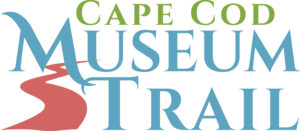Tiny black, reptilian-looking creatures anxiously wait while their mother tears apart a fish for their dinner. She then delicately places small bits into the mouths of the newly hatched ospreys. It’s just one of the marvels to watchon the OspreyCam inside the Cape Cod Museum of Natural History
The action is happening a few hundred yards away, behind the museum in the Wing Island arsh, where a man-made platform supports a temporary home each spring and summer for a pair of osprey and their offspring. An OspreyCam, attached to the platform, provides real-time views of the nest’s interior.
Arriving in mid- to late-March from their wintering grounds in Central or South America, ospreys like to nest in the Cape’s marshes, close to water and their favorite meal, fish.
David Gessner, author of “Return of the Osprey: A Season of Flight and Wonder,” is an authority on the species.
“The cam allows anyone to do something only naturalists used to do,” he says. “See the whole of nature embodied in an osprey family. Watching by cam gets you caught up in the spectacle, the cycle of nature. You can check it for five minutes a day and feel less isolated from other creatures.”
The cycle begins as the mating osprey pair builds their nest. Sometimes, the work falls along gender lines, says Gessner, with the male collecting sticks and other items, and the female deciding where each one goes. The cam records their actions as the ospreys painstakingly design their habitat.
Soon the nest building, and the mating, is done.
“In April you’ll see them on the cam hunkering down over their eggs; and by mid-May or early June, you start to see the telltale signs that the eggs have hatched,” says Gessner, “as the adult male routinely flies off and then returns with a fish, while the female prepares it for the nestlings.”
The baby osprey grow quickly through summer. “Then the biggest, or the bravest, will take off for a short flight,” he notes. The others soon follow. In late August or early September, the birds take off for southern climes. The nest succumbs to winter’s wrath until the rebuilding starts anew the following spring.
To learn more about the ospreyCam, visit www.ccmnh.org or call 508-896-3867.

Leave A Comment